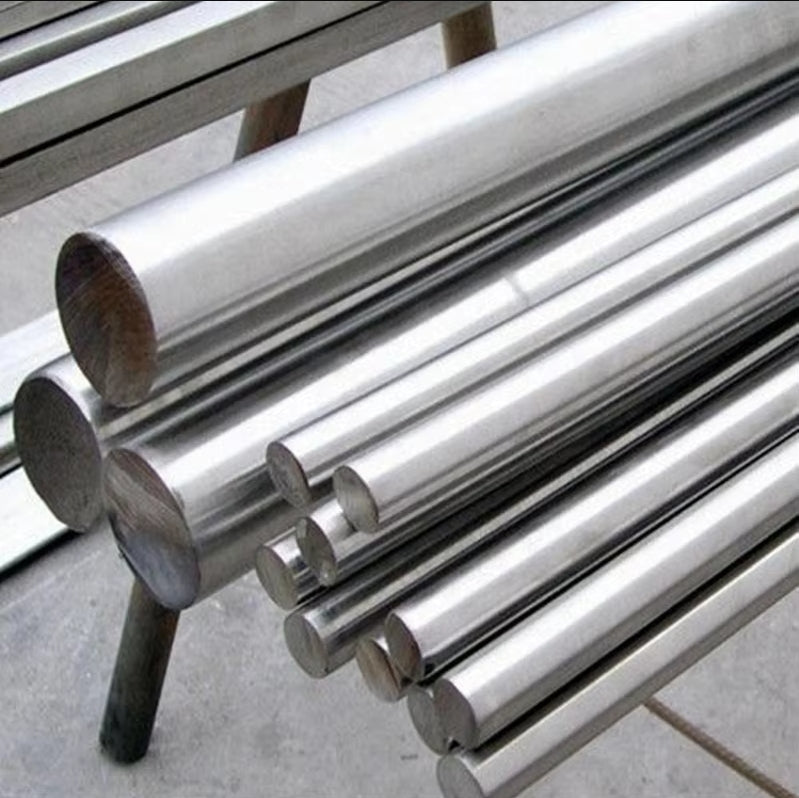403 Stainless Steel round Bar
403 Stainless Steel round Bar
Contact form
The 403 stainless steel round bar, also known as stainless steel round rod, is categorized into various types, including austenitic, austenitic-ferritic, ferritic, martensitic, precipitation hardening, and duplex stainless steels.
General Properties
This straight chromium stainless steel offers reasonable corrosion resistance along with high mechanical characteristics. The 403 series provides heat resistance with a scaling temperature of approximately 1300°F. As a 12% chromium martensitic stainless steel, it delivers a broad range of mechanical properties that can be enhanced through appropriate heat treatments. The alloy can be easily hardened by oil, fan, or air cooling and may be tempered at temperatures up to 1350°F (732°C) to improve fracture toughness. For thicker sections, oil or fan cooling is recommended.
Specification
- ASTM/ASTE: UNS S40300
- EURONORM: X7Cr13
Applications
The 403 stainless steel round bar is commonly used in applications such as:
- Compressor blades
- Turbine parts
Corrosion Resistance
This alloy exhibits a high degree of resistance to atmospheric corrosion, thanks to its ability to form a tightly adherent oxide film. Maximum corrosion resistance is achieved through hardening and polishing. However, it is not recommended for use in severely corrosive environments.
Oxidation Resistance
The 403 stainless steel round bar resists oxidation up to 1400°F (760°C), although it is advisable to keep the temperature below 1200-1300°F (649-704°C) during continuous service.
Hot Working/Heat Treatment
- Forging or Rolling: Recommended starting temperature is between 2000°F and 2100°F, with a finishing temperature above 1400°F. Final forging temperatures can be as low as 1300°F, provided care is taken to prevent rupturing the steel.
- Annealing: Can be performed at 1500-1650°F, followed by a slow cool to 1100°F, and then a final air cool.
- Hardening: The material can be fully hardened by oil quenching from 1650-1800°F. Light sections may be hardened using air or fan cooling.
- Tempering: Tempering can be conducted at temperatures between 400°F and 1400°F, though it is advisable to avoid the 800°F to 1100°F range to maintain impact properties and corrosion resistance. While strength and hardness decrease within this range, ductility and toughness improve as the tempering temperature is raised.
Overall, the 403 stainless steel round bar is an excellent choice for applications that require a balance of mechanical strength and corrosion resistance.
Share


